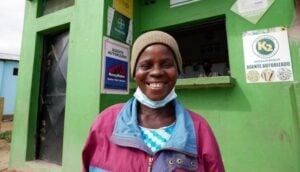We at Monitor Inclusive Markets believe that inclusive businesses – businesses that engage the global poor as either customers or suppliers – can vastly improve the lives of millions who are suffering the consequences of global poverty. That is why we were so disappointed when in 2011 we surveyed 439 such firms in Africa and found that a mere 13% of them were at scale.
Why is scale important? Over a billion people have inadequate access to water and some 2.6 billion lack basic sanitation, causing the deaths of 1.4 million children every year. A quarter of all humans live without electricity, and one in seven don’t even have enough to eat. While the proliferation of innovative new inclusive business models is exciting, they will not be able to able to make a significant difference to global poverty until they achieve scale.
So what are the barriers to scaling faced by these businesses? When we think about what causes a firm to grow, it’s natural to think about factors within the business itself. Maybe successful growth has been driven by the brilliance of the entrepreneur, or failure by deep flaws in their business model. But an analysis focused only at the level of the firm is severely incomplete, especially when that business is trying to engage the global poor in socially beneficial ways.
Take, for example, the barriers facing firms trying to deliver innovative, life-saving drugs to the rural poor in developing countries. While people in rural areas might desire and be able to afford these medications, logistics providers might not exist to get these products to their villages. Or think about the firm trying to provide solar lighting products in a country where these products face several taxes while its main competitor, kerosene, is actually subsidized by the government. The bad news, then, is that scaling barriers are tough and present at multiple levels both within and beyond the firm.
Understanding these barriers and, more importantly, what we should do about them, is the subject of our latest report, Beyond the Pioneer: Getting Inclusive Industries to Scale. It is the culmination of a year-long intensive research project that has spanned Asia and Africa, and our own deep experience working with market-based solutions on the ground. In it, we explain why these scaling barriers exist and why firms tend not to resolve them on their own, and describe how these problems were solved in successful cases of scaling in a range of sectors including financial services, energy, agribusiness and healthcare. You can read our findings and recommendations at www.beyondthepioneer.org
We remain optimistic about the truly transformative potential of market-based solutions to poverty. What we need now, however, is to move from merely spurring the emergence of innovative business models, to truly accelerating the march of these models towards real scale. We invite you to read the report and engage in the important conversation that we hope it will stimulate.
*Monitor Inclusive Markets is a unit of Monitor Deloitte.
Monitor Deloitte will be introducing Beyond the Pioneer at the Skoll World Forum in Oxford and the Sankalp Unconvention Summit in Mumbai, both on the 11th of April. This topic will also be presented and discussed at a number of events in the San Francisco Bay Area, Washington D.C., New York and London in April and May. Details of these events can be found at www.beyondthepioneer.org
We invite you to share the report and engage in the conversation using #BeyondPioneer and our Twitter handle @InclusiveMkts.
Harvey Koh is a Director at Monitor Deloitte and is the lead author of Beyond the Pioneer.










One Response
My 2 cents worth says scale up from pilot successes. It would be easier to replicate tuned-up programs that already confirm positive metrics at the pilot level.